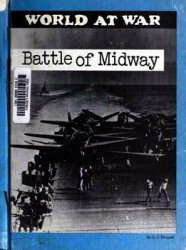The musical treatises by Johannes de Tinctoris (c. 1435-1511), referring to numerous classical authorities such as Aristotle, Plato, and Plutarch, were highly valued as sources of both theory and practice. Humanist composers believed that the purpose of music was to appeal to the listener, with the words clearly carried by the voice, following a passage in book 3 of Plato’s Republic. Tinctoris was in service to Ferrante I, king of Naples (1423-94), as tutor to his daughter, Beatrice. Educated by the famous humanist Lorenzo Valla (1407-57), Ferrante I respected the humanistic educational system and patronized the work of Tinctoris. Although his treatise on the origin of music is lost, Tinctoris’s dozen extant works include the earliest printed dictionary of musical terminology. Among other diplomatic tasks, he was charged by Ferrante I with persuading singers in service to the French court to leave King Charles VIII (1470-98) and move to the court in Naples.
During the 15th century, the itinerant French royal court traveled with its retinue of singers and musicians, residing in castles along the Loire River. By 1500 the court was established in and near Paris. Shortly after Francis I (1494-1547) was crowned in 1515, humanistic studies began to flourish under the leadership of Guillaume Bude (1467-1540), a brilliant scholar of ancient Greek. Francis I’s sister, Marguerite de Navarre (1492-1549), supported the Protestant poet Clement Marot (1496-1544, see Chapter 5, Literature and Language), whose folk-life verses set to music defined the chanson for his generation. The king, on the other hand, encouraged humanistic efforts to revivify ancient Greek songs, or odes. A group of seven poets known as the Pleiade wrote poetry in “classical” meter (see chapter 5). The name Pleaide derived from a group of seven classical Greek poets, living during the Hellenistic era, who had called themselves the Pleiade after the constellation with seven stars. An example of the Renaissance classical meter was Pierre Ronsard’s (1524-85) book Amours (Loves), published in 1552, produced as chansons in collaboration with several musicians. Unlike the simple chansons of Marot and his contemporaries, the new humanistic chanson was strictly measured to follow the text. In 1571 the Academy of Poetry and Music was founded in Paris, for the purpose of promoting the “new” forms and upholding their new standards. Orlando di Lassus (1530/32-94)
Music
Was among the composers influenced by this measured style.
By the mid-16th century, Italian humanists who had studied the available treatises of ancient Greek music made an effort to revive this genre or to restore it through their own compositions. New poems written in classical Greek meter were meant to be set to music in the ancient mode. Vincenzo Galilei (late 1520s-91), father of the scientist Galileo Galilei and of the lutenist (lute player) Michelangelo Galilei, wrote a treatise entitled Dial-ogo della musica antica et della moderna (Dialogue on ancient and modern music), published in 1581. He and his colleagues in Florence, including the singer Giulio Caccini (c. 1545-1618) and the composer Jacopo Peri (1561-1633), formed a group called the Camerata who met in the home of Count Giovanni de’ Bardi. One of the purposes of Galilei’s Dialogue was to criticize the erroneous assumptions about ancient music of his contemporaries, notably his teacher, Gioseffo Zarlino (1517-90), a noted musical theorist. Zarlino, chapel master of Saint Mark’s in Venice, published Le istitutioni harmoniche (Harmonic principles) in 1558. Although his system of harmonic yet imperfect consonances was a major contribution to the development of Renaissance music written for voice, Zarlino had misunderstood many of his ancient sources, as pointed out by Galilei.
Zarlino had used the modal system of the Swiss humanist Heinrich Glarean (1488-1563) without acknowledging his source. Glarean studied at the University of Cologne and achieved recognition from Emperor Maximilian I in 1512 when he sang one of his pieces for an assembly in Cologne. Befriended by Erasmus, Glarean taught music and the classical languages in Basel and later in Freiburg. After studying manuscript sources in ancient Greek and Latin, in 1547 Glarean published his influential book Dodecachordon (Twelve chord [system]). This work’s chief value is the discovery that the Greek Ionian mode was equivalent to the major scale (prevalent in most music during his time) and that the Aeolian mode was equivalent to the natural minor. Glarean’s explanation of ancient modal music facilitated the work of composers who were attempting to link their work with the “newest” ancient sources.




 World History
World History









